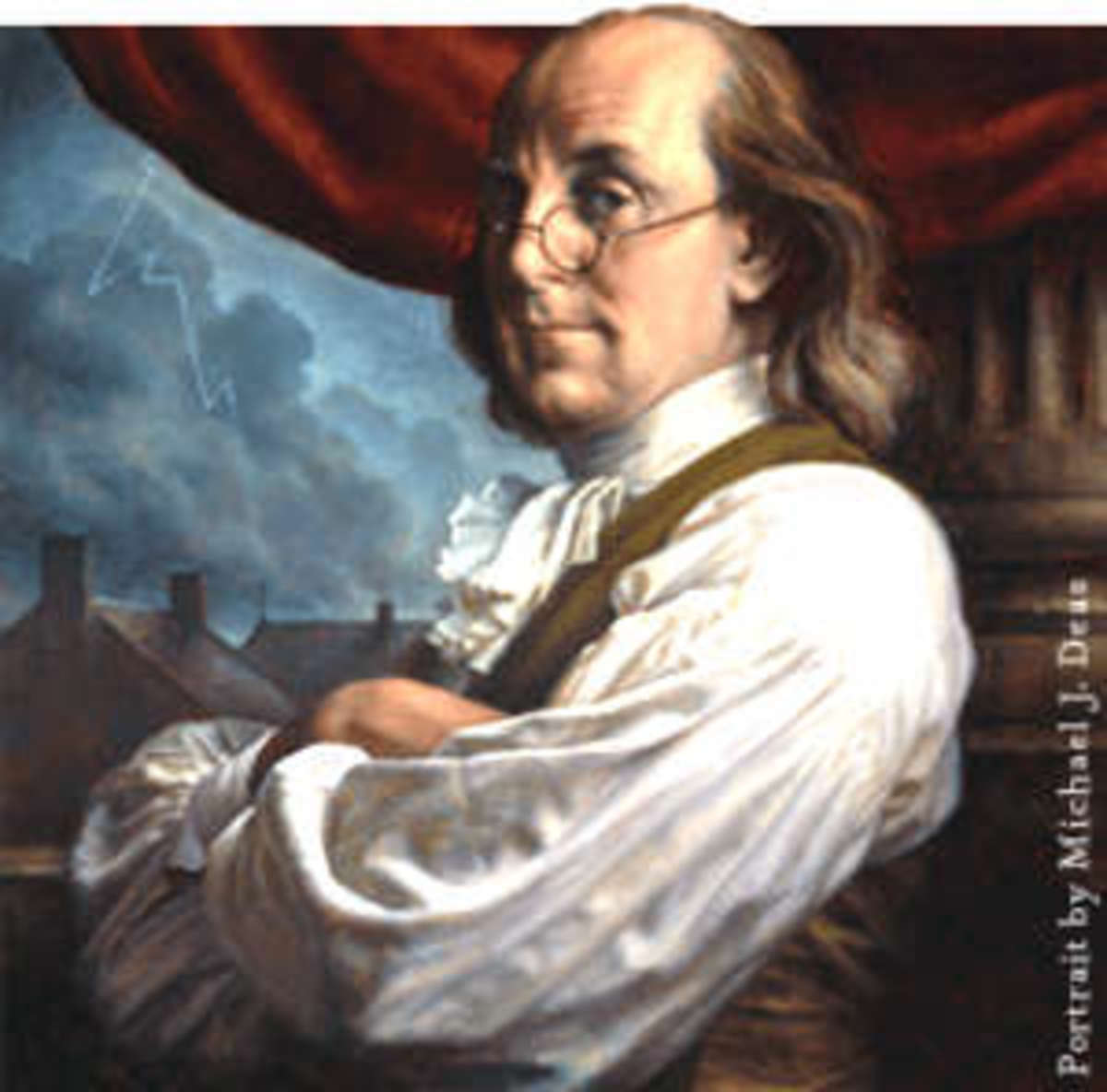Is Franklin the inventor of the Internet?
Upon reflection, I've decided that Al Gore did not invent the Internet. Since it is an evolved system there are lots of contemporaries who can take some credit. But where were the seeds of this sprawling public place where people and information and thoughts mill around in a semi-organized fashion?
I’ve just finished reading Benjamin Franklin: An American Life by Walter Isaacson, and I want to nominate Benjamin Franklin as the true source of the Internet. As an inventor he was pretty preoccupied defining things like electricity, so later folk could get us computers. I’m talking concept here, not diodes, oops make that chips. Franklin conceived or developed and put into practice many of the basic aspects of the Internet.
Networking
We seem to think of networking as a new social behavior. Franklin created groups to achieve his personal goals. He formed a Junto in Philadelphia and recruited other ambitious young men to join. Their charter was to meet regularly and discuss topics of personal or social improvement. One of the understood benefits was that Junto members would help other members with problems in business and life. He saw the benefit of networking early, organized his own network and then promoted the group and his own personal agenda.
Franklin was a joiner. In Philadelphia he became a Mason, and joined the controversial Lodge of The Nine Sisters while living in Paris in his later years. When he lived in London, he joined clubs and frequented coffee houses where he worked on furthering his and the colonies agendas.
Recommended version of Autobiography
Franklin’s is one of the greatest autobiographies of all time… but it was incomplete. Franklin ended his life’s story in 1757, when he was only fifty-one. In The Compleated Autobiography by Benjamin Franklin, we get the rest of the story, in Franklin’s own words. Faithfully compiled and edited from Franklin’s papers by Dr. Mark Skousen— Franklin’s descendant, acting as his devoted secretary—this is the closest we will ever get to Franklin sitting down in his study in Philadelphia, dipping quill into ink, and finishing his autobiography.
Branding and positioning
Identity is the Holy Grail on the Internet. Be out there. Be recognized. Become a brand name. Franklin saw the gold mine in branding early on and practiced it all his life. He started defining himself publicly when he started his first business. He signed everything as Benjamin Franklin, Printer. He continued this practice throughout his life. He saw it as public statement of humility and as showing his common roots even after he was honored for his other accomplishments. He added another brand name that of Dr. Franklin. He received doctorate honors in England and began using the Doctor Franklin designation. He saw the value of image at an early age.
He recognized that his behavior affected how others saw and related to him. He drafted a list of behaviors to modify and worked on it. If he could craft a pleasing persona it would help him in life. He did; and it did.
Anonymous
Many if not most Internet travelers pop up under alias identities from time to time. Being anonymous has some security benefits, and is sometimes a result of some insecurity. Franklin was not afraid to put himself out front and proclaim his involvement. He was a great self-promoter, but he also saw the value in the anonymous author. Franklin didn’t create the anonymous author but he perfected it as a communication tool. He wrote some controversial articles for his brother’s paper and pretended they came from a widow named Silence Dogood. She was able to express opinions with an authenticity that a teenaged Franklin didn’t have. He used the pen name technique often throughout his public life, here and in England.
Recommended Biography
I've been a fan of Franklin since I read the Autobiography as a youth. I have several Franklin volumes on my bookshelf; many of them are treasured gifts. The Isaacson biography is the most compelling read on Franklin’s life. He takes us through Franklin’s life coupling background from the Autobiography with letters and other contemporary material. He paints on honest picture of the man, faults and all. The genius of the man comes shining through. I highly recommend it.
Work from anywhere
One of the most compelling aspects of the Internet is that we can work and play anywhere (anywhere there is a signal, that is). Forget work from home, think work from current chair. Working from home in Franklin’s time wasn’t unusual as many trades’ people lived over or under their shop or store. He worked hard to develop some independent sources of income and positioned himself so he could practice his subsequent vocations and avocations from anywhere he chose to live. He traveled extensively in the colonies, and lived for long stretches in England and France and traveled the continent. He remained active in business and political ventures wherever he was. He used letters, meetings, letters to the editor and emissaries to be his link. He carried his papers with him in trunks as he crossed the Atlantic. Wouldn't he have loved a laptop? The key thing is he saw his office as being where he was, not a go to place.
Feedback Driven
Restate your position, redefine your image or re-layout your site, as soon as you get the message from the ether world. Ok, the Internet offers instant feedback and Franklin’s pace was slower. It sometimes took months for a message to be conveyed, and more months for the change to be implemented. But Franklin was unusual for his time in his openness to feedback and his willingness to make tactical adjustments to reach his strategic goals.
In Conclusion
Ok, I've made my case for Ben Franklin as a major source for the Internet, in inspiration if not technology. Wait a minute - shouldn't electricity count as a technology contribution?








